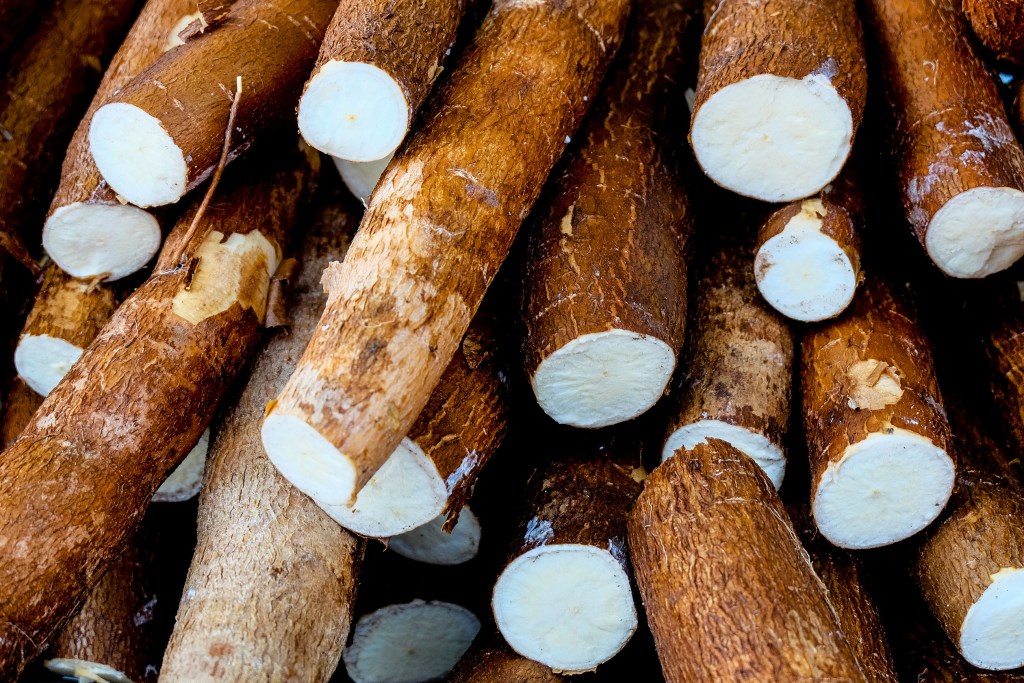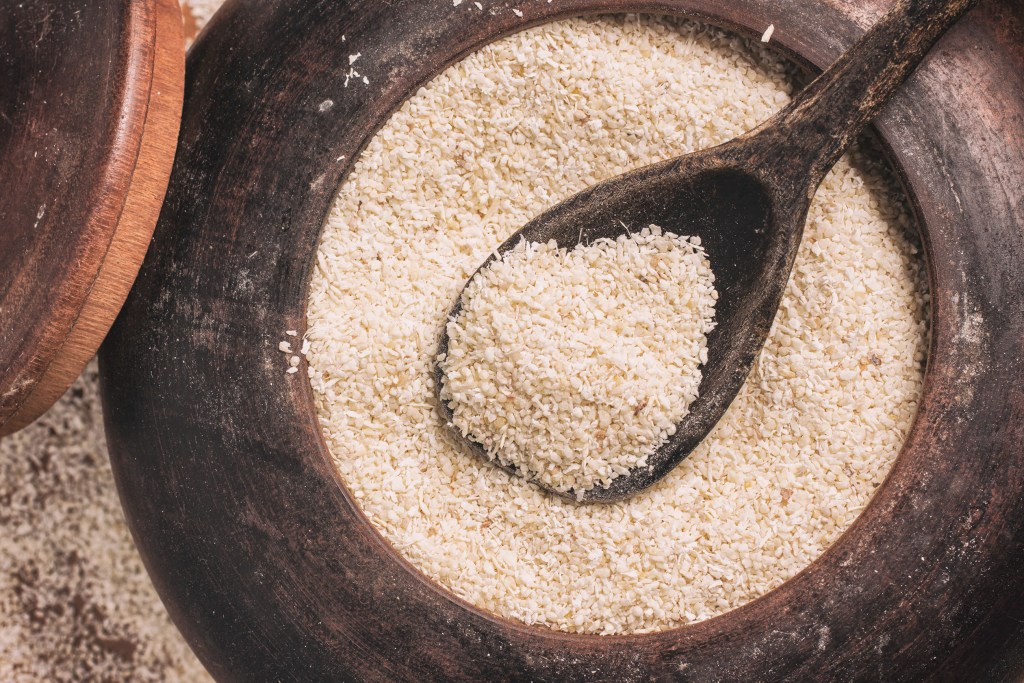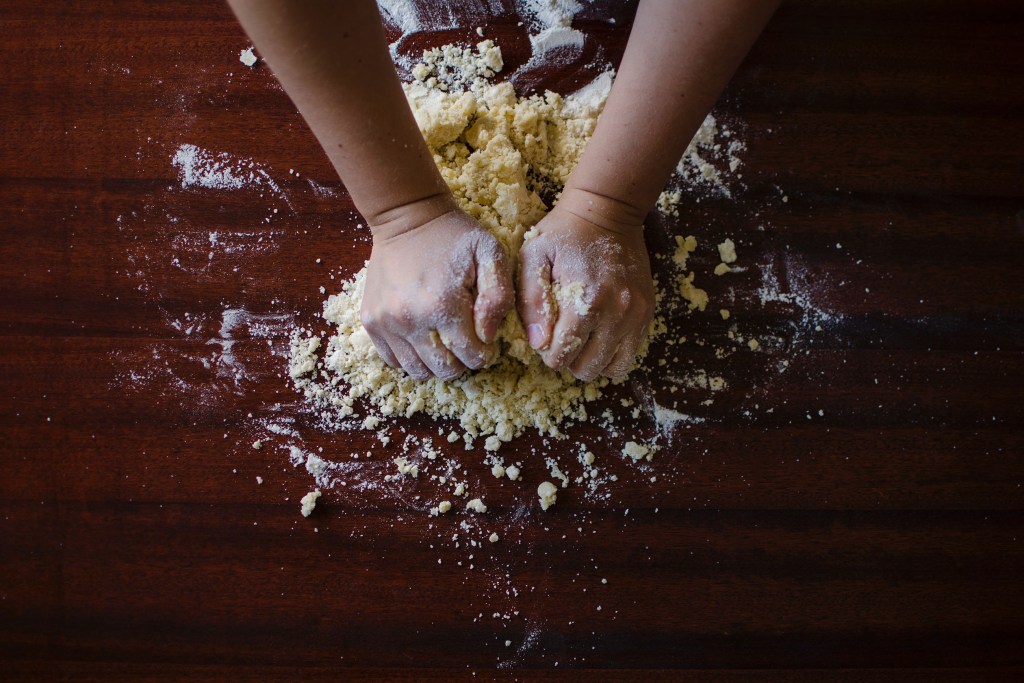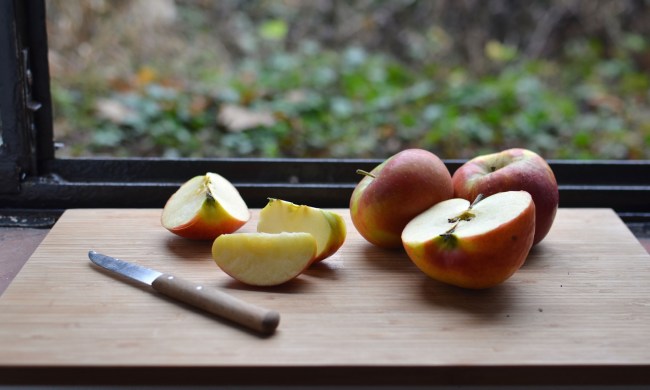These days, alternatives to our favorite (but not so healthy) foods are flooding the supermarket shelves. Oat, soy, and almond milk, nut butters, and vegan burgers are all the rage. Next up? Cassava flour. This gluten-free, grain-free, and nut-free alternative can replace flour in just about any recipe. While it may not have been easy to find in the U.S. a few year ago, more grocery stores are now stocking cassava flour and products made with it. If you’re curious about the benefits of this flour alternative, keep reading to learn more about this root, how you can use it, and where to buy it.

What is cassava flour?
Cassava flour comes from the cassava (or yuca) root, which has long been used in African, Asian, and South American cuisines. When the root is peeled, dried, and ground, it becomes an excellent flour substitute. This is thanks to its mild, neutral flavor and binding ability, comparable to wheat flour. Cassava flour is minimally processed, low in sugar, and considered-friendly. This flour is also vegan, vegetarian, and gluten, nut, and grain-free, so it’s safe for those with these food allergies.
Cassava flour nutrition
Whether you have an allergy or are on a low-sugar or restrictive diet, cassava flour can be a great alternative to wheat flour or flour-based products and baked goods. Cassava also contains some essential nutrients like vitamin C, fiber, niacin, thiamine, and riboflavin, but this doesn’t necessarily make it a healthier choice for your diet. Cassava is high in carbohydrates and contains about double the calories and carbs of a 100g sweet potato. If you’re on a low-carb diet, be mindful of how much cassava you’re eating and enjoy it in moderation. If you’re diabetic be especially aware, as these high carb levels can potentially lead to an insulin spike.

Is cassava flour the same as tapioca flour?
These two terms are often used interchangeably, and while they both come from the cassava root, cassava flour and tapioca flour (also called tapioca starch) are two different things. Tapioca is extracted from the cassava root by washing and pulping it. The wet pulp is then squeezed to produce a starchy liquid. When the moisture evaporates, tapioca flour remains.
On the other hand, cassava flour is made from the entire root. The cassava root is peeled, dried, and ground to create this flour, and is more fibrous than tapioca flour. Cassava is also used to make tortillas, which you cannot do effectively with tapioca flour.
Isn’t cassava flour poisonous?
This is a common misconception about cassava. Consuming raw cassava can be poisonous since the root contains naturally occurring cyanide compounds. However, processed cassava flour is not toxic.
People have been making and eating this flour for hundreds of years and have developed a method of soaking, cooking, and fermenting cassava to get rid of all the toxins. You can rest assured knowing that the cassava flour you pick up at the grocery store will certainly not contain any harmful, toxic compounds.

Using cassava flour
Cassava flour is great for cooking and baking because it is so similar in taste and texture to regular wheat flour. When swapping out regular flour with cassava flour, stick with a 1:1 ratio. So, if a recipe calls for three cups of flour, you can use three cups of cassava flour instead. Once you start cooking with cassava flour, you’ll gradually become more comfortable swapping it into all of your recipes.
Where to get cassava flour
Cassava flour and products made with it are widely available in the United States. Check the health food section of your local grocery store, a specialty health food store, and online. To get started, begin by testing popular cassava flour brands like Otto’s Naturals, Bob’s Red Mill, and Farmers Way. Next time you’re shopping, be on the lookout for the variety of cassava-based products available; you may be surprised!
For people with allergies or strict dietary restrictions, cassava flour is an excellent alternative to wheat- and nut-based flours. Its flavorless taste and powdery texture make it easy to swap into almost any recipe. During your next trip to the grocery store, leave that regular flour on the shelf and experiment with some cassava flour instead.
BlissMark provides information regarding health, wellness, and beauty. The information within this article is not intended to be medical advice. Before starting any diet or exercise routine, consult your physician. If you don’t have a primary care physician, the United States Health & Human Services department has a free online tool that can help you locate a clinic in your area. We are not medical professionals, have not verified or vetted any programs, and in no way intend our content to be anything more than informative and inspiring.



